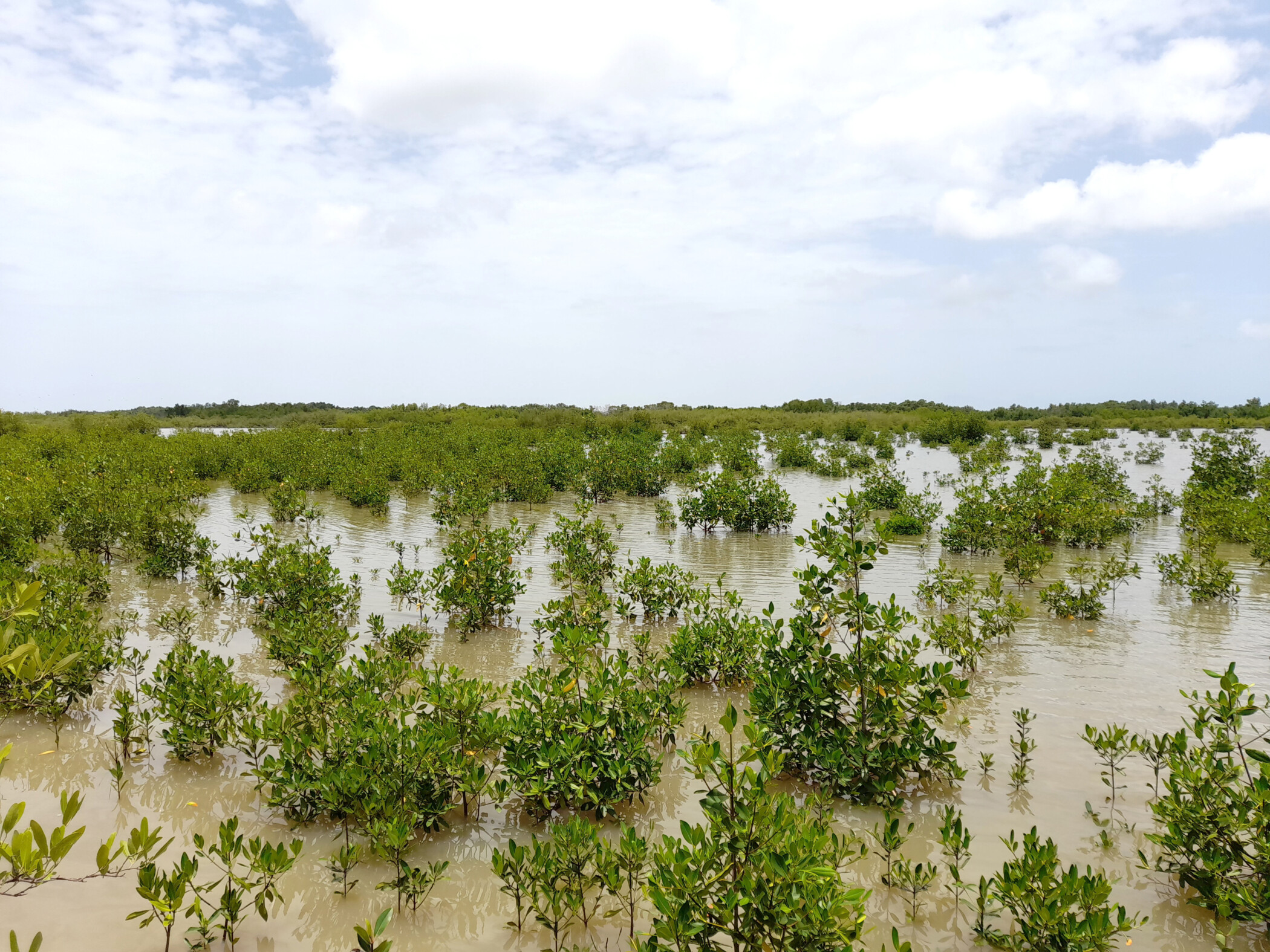




The To Plant or Not To Plant initiative aimed to restore 30.000 ha of mangroves in support of climate mitigation, adaptation, biodiversity and human well-being. It applies Ecological Mangrove Restoration principles. This integrated approach yields much better results than restoration approaches that focus on large-scale tree planting only. The initiative develops business plans with local partnerships, including communities, NGOs government agencies and private sector that enable expansion of small-scale mangrove restoration projects across a landscape scale.
Wetlands International provided training and awareness raising to ensure implementation capacities are in place. Target countries included Guinea-Bissau, Tanzania, Indonesia and the Philippines. A global outreach campaign stimulated replication elsewhere.
The world needs mangroves, but in many parts of the world they have been lost or degraded, along with their valuable services like coastal protection or fisheries enhancement. Restoration is necessary in many places. Mangrove planting is hugely popular, but the majority of planting efforts fail to restore functional mangrove forests and we can learn from these experiences. Successful restoration results in the establishment of a sizeable, diverse, functional and self-sustaining mangrove forest that offers benefits for nature and people.
When the enabling biophysical and socioeconomic conditions are put back in place applying Ecological Mangrove Restoration principles, nature will do the rest. When that happens, species to site matching is optimal, resulting in better survival, faster growth, and a more diverse and resilient mangrove forest. In some cases, planting can assist or enrich the natural regeneration process. However, planting in non-mangrove habitat and areas showing natural mangrove recruitment needs to be avoided.

Defenders of wetlands: safeguarding biodiversity, promoting sustainable management, advocating conservation.